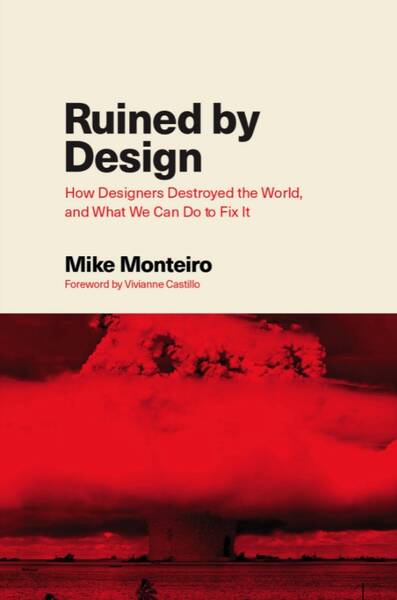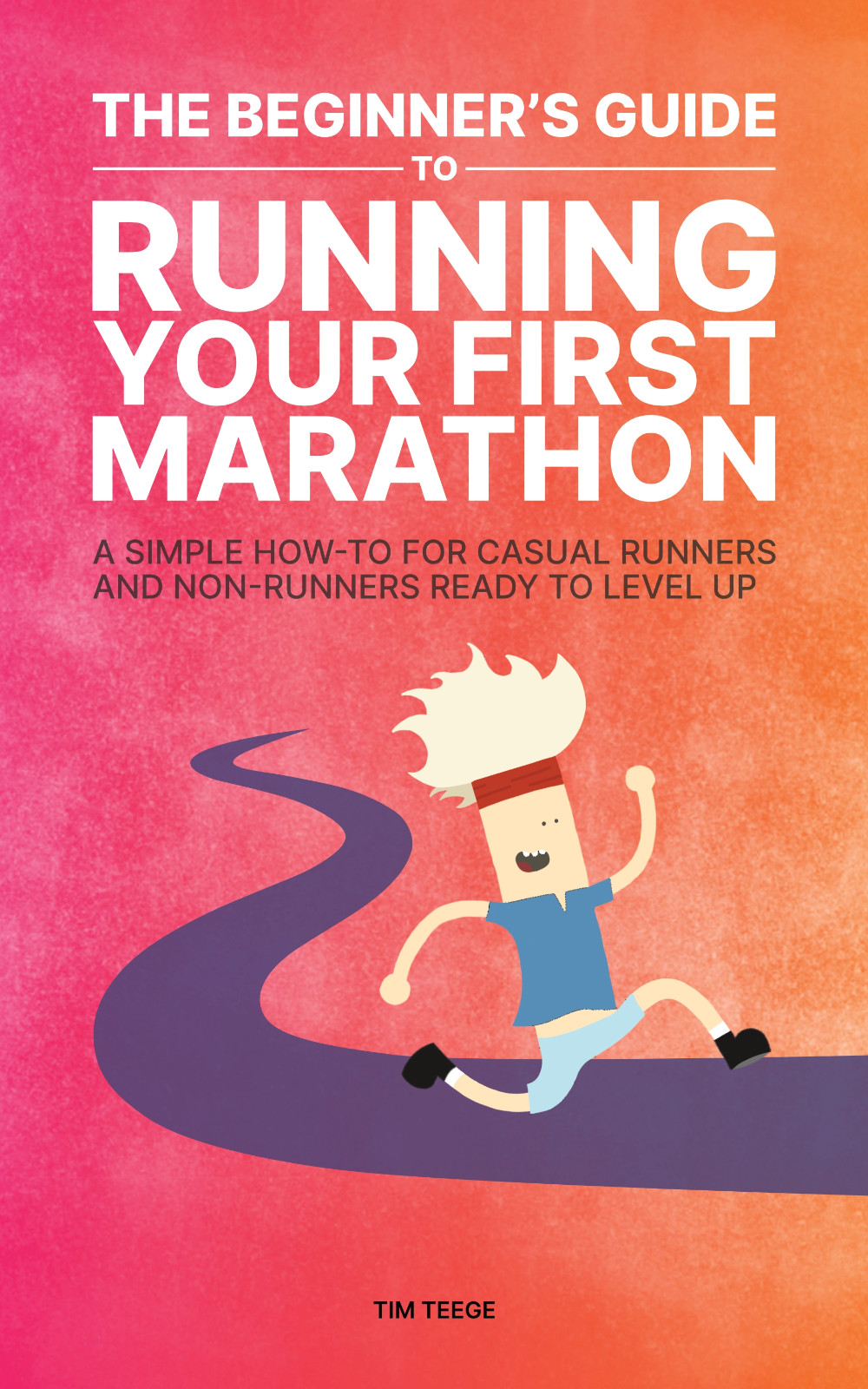🚀 The Book in 3 Sentences
- If you are creating something, you are a designer. You have to take responsibility for what your creation is going to be used for, especially if you think you’re just following orders.
- There are no justifications for doing unethical work. Use your voice to change things or unite, quit and march.
- Design’s purpose isn’t to make the designer feel liked or to just look pretty, it’s to solve problems. Only by that standard should it be measured.
🎨 Impressions
It’s refreshing to have someone respectable getting really angry about the situation we have moved ourselves into. The lack of ethics among lots of people in a wide variety of professions, not only the designers (here they are the focus) are showing, is astounding.
🍀 How the Book Changed Me
- As a designer who is a part of putting websites into the world, it’s important to hear about our own responsibility towards the public. This means, looking at what consequences our creations might have on people before publication. Choosing wisely for whom to work.
- Ever since reading Digital Minimalism by Cal Newport, the idea that Social Media and other designed digital services are quite probably making our lives worse, has made it into my head. This book cemented it by talking about the toxic incentive structures within those companies which put profit before anything else. The most notable points would be Twitter’s handling and shameless monetizing of Donald Trump in general and him threatening nuclear war on the platform, and Facebook’s many privacy busts and quotes from Zuckerberg like “what’s good for the world isn’t necessarily good for Facebook” or him being okay with Holocaust deniers roaming the platform.
- Legality isn’t a good enough boundary when evaluating design, especially in the digital age the law lags behind a lot. We need to develop and enforce a more ethical stand and see ourselves as the gatekeepers.
✍️ My Top 3 Quotes
- we need to design things that improve the lives of the people who make them and the people who use them; design things which have a positive impact on society at large.
- It is difficult to get a man to understand something when his salary depends upon his not understanding it.
- But here’s the thing: just because the person next to you might be an asshole, it’s not a good excuse for you to be one.
- Everything your labor is used for should have the goal of helping people.
📔 Summary & Notes
- Design is a political act. What we choose to design and for whom, and what we choose not to design, implies this.
How Designers Destroyed The World
- There are two words every designer needs to feel comfortable saying: “no” and “why”.
- We need to design things that improve the lives of the people who make them and the people who use them; design things which have a positive impact on society at large.
- People don’t see the things they’re rewarded for as problems to fix.
- We’re no longer pushing pixels around a screen. We’re building complex systems that touch people’s lives, destroy their personal relationships, broadcast words of both support and hate, and undeniably mess with their mental health.
- We need to celebrate the differences. Celebrate the reasons the metro stops aren’t all the same. Celebrate the crooked streets. Celebrate the different voices. Celebrate the different food smells.
- The real question isn’t how you’re going to pay your rent or mortgage while working ethically, the real question is why you’d be willing to work unethically in the first place.
- The biggest problem, by far, is they [designers] confuse solving design problems with personal expression.
- Design is about keeping people from doing terrible things to other people.
- You put people from different backgrounds together, and they can see things from multiple points of view. They cover each others’ blind spots. It’s the smart move.
- Non-authoritarian societies are not made up of laws as much as they’re made up of an agreement to follow those laws.
- I am both racist and sexist, because I’ve benefited from both racism and sexism. If you are reading this and you look like me, you are those things too.
- Perhaps, just perhaps, the point of life is to earn the death that comes at the end. And perhaps, no — most likely, that death is best earned by doing everything we can for those coming up after us. Earn your death by making room for the generation behind you.
- Two thousand years of white boy leadership. We had everything going in our favor. We had to work half as hard as anyone else. We got all the breaks, and we still set the world on fire.
What We Can Do To Fix It
- The best place to do good work is right there where you are standing.
- But here’s the thing: just because the person next to you might be an asshole, it’s not a good excuse for you to be one.
- So, rather than asking yourself “won’t somebody else make it?” ask yourself “what if me saying no is the inspiration for other people to stand up? What if me saying no is the first step in a movement? What if me saying no is the first step to making things right?”
- Where does this idea that you have to be open to tossing your ethics out the window to be successful come from? That’s worth exploring a bit.
- Too often, designers present their work as if the goal is to get someone to like it, as if our job is to make someone happy. (Ask yourself how many times you’ve ended a presentation with “Do you like it?”) That’s not the job. You were hired to solve problems.
- All of Silicon Valley is a revenge fantasy about getting picked last at dodgeball.
- We want to create an environment with as many different experiences, viewpoints, and ways of looking at the world and solving problems as possible.
- You might think that’s a cynical viewpoint, but when Donald Trump tweets about nuclear war with North Korea, Twitter packages it into an email blast to make sure you see it. They are monetizing that moment of panic.
- If left unchecked, today’s monsters become tomorrow’s objects of comfort. If you don’t believe me, please remember that your pug’s ancestors used to be canine apex predators.
- Many of the design practices in this chapter can even live in murky legal waters. Is it legal? I don’t care. Our question is whether it’s ethical, and the law often drags far behind what’s ethical.
- If we want to design the right way, we are going to have to do it by talking to people. We are not pixel pushers. We are gatekeepers.
- [On confidence to stand up for your ethical views] Humility is just lipstick on a pig called fear. [..] My confidence isn’t for my benefit or even my boss’s benefit, it’s for the people’s benefit.
- Most of the workshop participants want to know what they can do to change the boss’s behavior. In truth, it’s much easier to change your own.
- Some of us are natural extroverts, but the rest of us have to work at it. Getting the job done and speaking up to people and building alliances are gonna require you to push past that level of discomfort, at least at work. You can still be an introvert at home.
- But letting people know that you’re confident enough to admit that you’re at a loss is when you beat the level boss.
- There are things worth quitting for. There are things worth getting fired for. This is the time for good trouble.
- When we refuse to let our own children use the fruits of our labor while still cashing the checks we’re earning by addicting other people’s children—all the while rending our garments over “what’s happening to kids today!”—we need to burn all our work down. Nothing is happening to the children. We are doing something to the children.
You Can’t Go It Alone
- When we organize, they have a problem. Even the biggest companies in the world are made up of people like us.
- If you want to learn how to work, there’s no better teacher than another worker.
- When people start dying, we regulate industries and we license practitioners.
- Every industry starts out wild and then matures. The dangerous ones get regulated for society’s safety.
- If we want positive search results, we should do positive things. If we want to reassure the users of our products that they can trust us, we should do positive things.
Conclusion
- Now is not the time for designers to get political. That was yesterday. Now’s the time to wake up and fight.


Leave a Comment